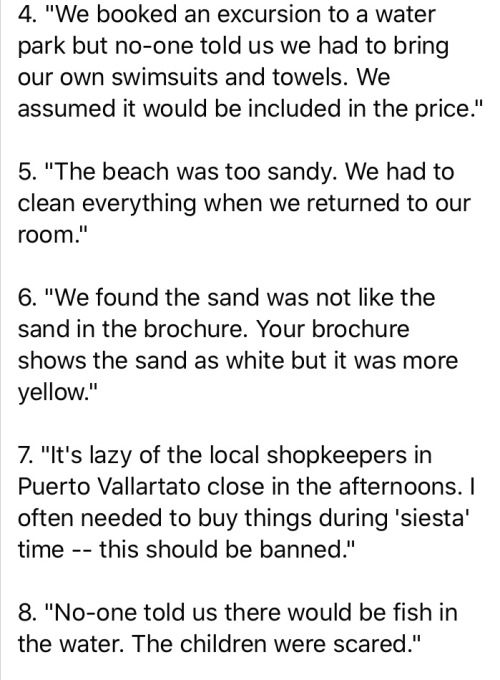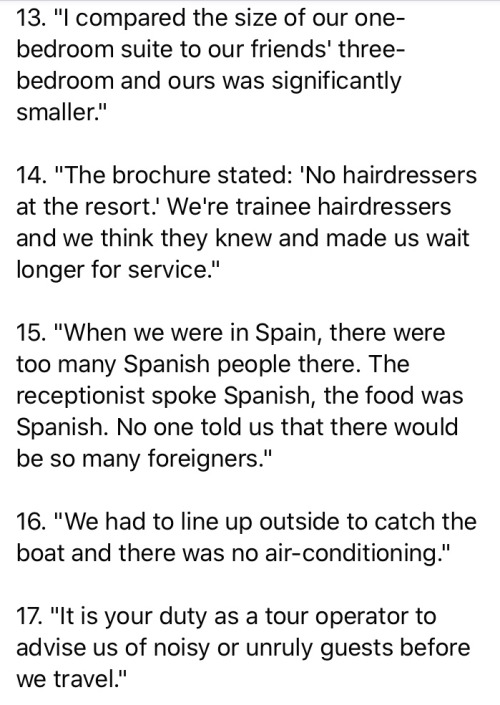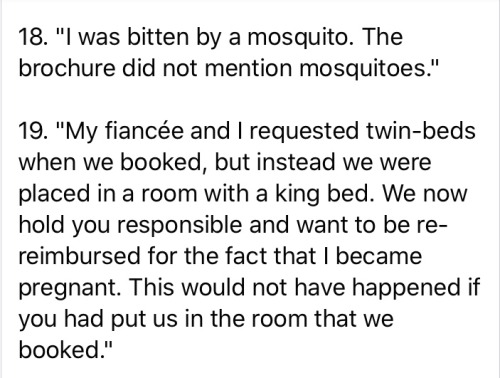268 posts
Latest Posts by ignorethisrandom - Page 6
every scar will build my throne | game of thrones
The Black Medici Prince
I really wish Medici had a fourth season covering the life of Alessandro de Medici and a young Catherine de Medici. The Emperor’s sack of Rome would be amazing to see on screen. It’d be Game of Thrones level of destruction!
He could be played by the guy that played Grey Worm in Game of Thrones!
I’d pay to see it!
Why is Diane de Poitiers always played by a young woman when she was 17 years OLDER than her lover, Henri II?
There are plenty of attractive older actresses out there. (Hello half the cast of American Horror Story Season 3!)
Diane de Poitiers was the original Mrs. Robinson.
Embrace the MILF casting directors!




WOMEN’S HISTORY † LOUISE DE LORRAINE (30 April 1553 – 29 January 1601)
Louise de Lorraine was the only surviving child of Nicolas de Lorraine, duc de Mercœur and his first wife, Marguerite d’Egmont. Her mother died when Louise was a baby and her father remarried to Jeanne de Savoie-Nemours in 1555, by whom he had six children, two of whom died young. Jeanne proved to be a loving and caring stepmother who ensured that young Louise received a good education. Jeanne died in 1568 and her father married a third time to Catherine de Lorraine, the granddaughter of Claude de Lorraine, duc de Guise and Antoinette de Bourbon. Catherine, who was only three years older than Louise, was reportedly unfond of all of her stepchildren. Regardless, by reaching adulthood, Louise was recognized as an ideal beauty of the times with blonde hair and fair skin. In 1573, Henri, duc d’Anjou, the third surviving son of Henri II and Caterina de’ Medici, paid a visit to Charles III, duc de Lorraine on his way to claim the crown of Poland. Louise was present at this gathering and Henri was immediately taken with her, supposedly because of her great resemblance to Marie de Clèves. After the death of his older brother in 1574, Henri returned to France to claim the throne. Henri originally planned to marry Marie, but she died shortly afterwards of pneumonia or complications of childbirth, leaving Henri heartbroken, though aware that he had to marry to father heirs. His mother wanted him to marry Elisabet Vasa, but Henri sought Louise’s hand instead and they married 15 February 1575, two days after his coronation. Caterina was initially uneasy about her sons’ choice, as Louise was the cousin of Guises, but she changed her mind after meeting Louise. Louise and Henri appear to have genuinely loved each other, but despite their hopes, they were childless. She made numerous pilgrimages to pray for children, but none were born, causing her great grief. She was also greatly upset about her husband’s conflicts with her half-brother, Philippe-Emmanuel, a diehard supporter of the Catholic League and prayed constantly for reconciliation between them, though she was disappointed in this, too. She was generally well-liked by her subjects for her generosity and charity. Henri was assassinated 1 August 1589 by Jacques Clément in revenge for his ordering the assassinations of Henri de Lorraine, duc de Guise and Louis II de Lorraine, cardinal de Guise. Louise was grief-stricken at his death and went to work trying to reverse the excommunication he had received. She begged his successor, Henri IV, to punish Catherine-Marie de Lorraine, the sister of the Guise brothers, who had openly boasted about her involvement in the assassination of Louise’s husband, but he didn’t, though both he and Louise were probably relieved when Catherine died in 1596. Louise spent the rest of her life residing in the Château de Chenonceau. She died 29 January 1601 and was buried in a convent in Capuchins. In the 19th century, however, her remains were moved to the Basilica of Saint-Denis. Her niece, Françoise, married Henri IV’s favorite illegitimate son, César, duc de Vendôme.
Life beyond Henry VIII
Christina of Denmark, most famous for sassily rebuffing Henry VIII’s proposal of marriage by saying she’d only marry him if she had TWO heads, lived as interesting a life as any of the Tudors.
Her father Christian II of Denmark was so hated in that country that history now calls him “Christian the Tyrant”. He was overthrown by his own uncle and exiled to the Netherlands, then ruled by his brother-in-law, the Holy Roman Emperor Charles V.
Christina grew up an exiled princess without a kingdom, the daughter of a black mark on European royalty.
She married young and was widowed soon after.
Her cousin was Philip II, who later married Mary Tudor...then Elisabeth de Valois (the French princess)...then his niece Anna of Austria...
Christina actually met Mary Tudor, who was jealous of Christina’s closeness to Philip, a closeness her own marriage to the Spanish prince and future king was lacking.
After refusing to marry Henry VIII, Christina married the Duke of Lorraine and had several children with him, including Charles III. Her husband died after four years of marriage, leaving Christina to fight with the other nobles over the regency for young Charles. Christina won the regency...and then lost it. But she wasn’t going to give up without a fight, not even when France invaded the duchy of Lorraine and demanded that Christina hand young Charles over to the French king, Henri II, to raise in France.
She went to King Henri in person to beg him not to separate her from her son, but he wouldn’t relent and took her son anyway. Charles would later marry Henri’s daughter Claude in one of the few happy and loving marriages in the Valois family history. Charles and Claude later named one of their daughters after Christina.
Also, Henry VIII wasn’t the only person Christina turned down. She also turned down one of Mary Queen of Scot’s uncles, a member of the Guise clan. She blamed the Guise for Henri’s invasion of Lorraine.
Funnily enough, Charles wasn’t the only member of his family to marry into the Valois family. Charles’s cousin Louise married Henri de Valois, known in history as King Henri III...aka, the possibly gay French king...(who history buffs on Tumblr should embrace as their bisexual goth problematic fave, just saying).
According to writer Brantome, Christina also met Mary Queen of Scots after the young queen was widowed by her beloved, the young King Francis II. Mary’s uncle warned her ahead of time about Christina’s theatrical antics and her need to be the center of attention, behavior the Guise party found both annoying and amusing. I wonder what Christina would have thought of the Scottish queen, daughter of ANOTHER woman who turned down Henry VIII with a sick burn.
Christina may not have attended her son Charles’ wedding to the Princess Claude, but she did attend the coronation of the new king of France, ten-year-old Charles IX...who could barely keep his large crown still on his little head. Brantome wrote that Christina showed up in her finest velvet gown with a carriage drawn by Turkish horses (her favorite type of horses). When she arrived in this pomp and splendor, even Catherine de Medici remarked: “There’s a proud woman!”
Christina tried to offer every piece of advice to her son Charles while he was Duke of Lorraine, while her daughter-in-law Claude listened to her mother’s every advice on what to do with Lorraine. The poor couple probably never caught a break from two very nosy and very opinionated mothers and mothers-in-law.
It’s a pity that Reign never mentioned Lorraine, or Christina, her son, and tons of other colorful personalities from France during the 1550s and 1560s. I feel like the writers would have had so much fun featuring a sassy smack down between Catherine de Medici and Christina of Denmark.
Reign really failed to show how important the Guise family was to Mary. There’s a whole goldmine of storylines from history that the show sadly skipped over.
Part of what makes Sansa successful in the end is because she tries to learn from other people, regardless of whether she likes them or not. There is a lot to be said for the Ceresi’s and Littlefinger’s of the world. Sure she has setbacks, but she learns.
Compare that to say Jon who is destined to make mistakes, or Daenerys who also makes the same mistake in Westeros that she did in Qarth, in Mereen, and other places.
I was thinking about that conversation in which Jon asked if Sansa admired Cersei. I guess It’s not exactly admiration, but Sansa understands Cersei. She gets that Cersei was abused and suffered a lot and she knows how it’s like to be blamed for your own abuse. Just like Cersei, I guess Sansa has a lot of anger within her. It doesn’t mean she admires Cersei. Still, it’s funny when antis say Sansa became Cersei 2.0 just because of this scene 😂
how could sansa admire cersei? cersei abused sansa, she held her hostage. jon’s comment was deeply insulting and offensive to sansa.
WE NEED SEASON 2

Sanditon seems like it might do better on a bigger budget streaming service.
Vote for Sanditon on Hulu
Hulu subscribers, you can vote for Hulu to pick up Sanditon - like they picked up The Mindy Project. You need to log in, then go to Ideas and search for Sanditon. Then vote!
https://community.hulu.com/s/ideas

m e l o d y / g l o u c e s t e r / p e g a s u s a mix for mary katherine blackwood
01.// goblin - suspiria (witch) 02.// joanna newsom - sprout and the bean (should we go outside? should we break some bread?) 03.// rasputina - gingerbread coffin (lay her down in her gingerbread coffin, when we need her she’ll rise to the light) 04.// jack off jill - my cat (my cat is crazy, he’s everything to me) 05.// evanescence - imaginary (I know well what lies beyond my sleeping refuge, the nightmare I’ve built my own world to escape) 06.// tennis - deep in the woods (consuming us fast, change is upon us) 07.// björk - hyperballad (I go through all this before you wake up, so I can feel happier, to be safe again with you) 08.// rasputina - signs of the zodiac (can you avoid what gave daddy his heart attack?) 09.// kate bush - get out of my house (this house knows all I have done) 10.// emilie autumn - cold (instrumental) 11.// karen o - the moon song (your shadow follows me all day, making sure that I’m okay, and we’re a million miles away)
8tracks
This is an interesting theory. If it is true, then maybe it’s one of the first times Littlefinger realized the power his words can have over other people’s actions. Maybe at first he felt guilty, but then the power started to feel good, leading him down the path to the man we meet in AGOT.
Do you think it’s possible that Littlefinger tricked Brandon into thinking Lyanna was kidnapped by Rhaegar? All four were in the same area around the same time and it’s definitely within his MO. Not to mention that he just came off a brutal beating from Catelyn’s betrothed and we know what he’d do to get his competition out of the way.
I’m going to preface this with saying that I don’t think we have direct textual evidence disproving this theory. I’m skeptical on Watsonian grounds - first and foremost, it requires Littlefinger to know of Lyanna’s disappearance well before Brandon himself learned of it. While he was recovering from a serious wound half the width of the continent away.
I also dislike this theory from a Doylist standpoint.
First, in terms of LIttlefinger’s backstory, he’s the little guy everyone underestimated, only realising too late that he was their biggest problem. That sort of thing requires time and buildup on the villain’s part; I can’t help but feel that it takes some of the punch out of Littlefinger successfully orchestrating the start of the War of Five Kings if this is his second successful attempt at kicking off a war.
Second, I don’t think it adds anything, really. It doesn’t tell us anything new about Littlefinger (we already knew he’s manipulative), it doesn’t tell us anything new about Brandon (we already knew he was rash). The idea that Brandon learned about Lyanna’s disappearance and believed it was abduction works as a story no matter the source the original news came from.
![Sansa With Littlefinger / Jon With Daenerys | [insp Post]](https://64.media.tumblr.com/a3f11e45af428d4eba5d94870ac886e0/3f84102884e21b11-03/s500x750/c6147cdcea8b42aa99468707fbdd1ef9efc13c35.gif)
![Sansa With Littlefinger / Jon With Daenerys | [insp Post]](https://64.media.tumblr.com/44578f17940007b3fdbd6ee04ae8e8c8/3f84102884e21b11-ce/s500x750/8a8fc9b4c2b2108d501108c212328e77dfeedcb5.gif)
![Sansa With Littlefinger / Jon With Daenerys | [insp Post]](https://64.media.tumblr.com/98604605cc4cd6f7377107caceca592e/3f84102884e21b11-a3/s500x750/98c921d500849d2e6b35179f40f9428cd32472bb.gif)
![Sansa With Littlefinger / Jon With Daenerys | [insp Post]](https://64.media.tumblr.com/1e4ae943b477c999537ff4486ba87838/3f84102884e21b11-e7/s500x750/9981150048b167e5af0efab82e778fc88f636795.gif)
![Sansa With Littlefinger / Jon With Daenerys | [insp Post]](https://64.media.tumblr.com/8d4a15ac3f0ee41624c07e6a7246c4e1/3f84102884e21b11-1d/s500x750/fc09683a92fa010db33708f110741154715b24d6.gif)
![Sansa With Littlefinger / Jon With Daenerys | [insp Post]](https://64.media.tumblr.com/bb70190a9273dd86fc002c3c75347b4d/3f84102884e21b11-53/s400x600/8b7c953a163f67d789e7ccfad838325ab5535356.gif)
![Sansa With Littlefinger / Jon With Daenerys | [insp Post]](https://64.media.tumblr.com/043449b19f7cace3916d17d588584e18/3f84102884e21b11-68/s400x600/1d2879fba03e0a086bba23f18352d08a5b5f1abb.gif)
![Sansa With Littlefinger / Jon With Daenerys | [insp Post]](https://64.media.tumblr.com/3fe0b1c38d1a262b06c69b654bb41d6f/3f84102884e21b11-7c/s400x600/ab20763e403edf525cd0154f27ebfef50a20590d.gif)
![Sansa With Littlefinger / Jon With Daenerys | [insp Post]](https://64.media.tumblr.com/273a867e0cb8c4ba7a6068752713bda4/3f84102884e21b11-69/s400x600/8f0d4658c330cb1acde318ee20c9127ad6039cbd.gif)
![Sansa With Littlefinger / Jon With Daenerys | [insp Post]](https://64.media.tumblr.com/7f80d0f72f43afc352dd1163bb14ce0c/3f84102884e21b11-a4/s500x750/7937c0a6a2873466f0ad2b927334c4c514808f06.gif)
sansa with littlefinger / jon with daenerys | [insp post]
It’s interesting looking at the series’ original outline and then comparing it to what the series eventually morphed into. There’s a huge difference between how Arya in book one is written versus how someone like Sansa, Daeneryes, Jamie, or Tyrion are written in later books. Arya in GOT initially comes across as the stereotypical girl-dresses-as-boy/girl-wishes-she-was-boy trope that we see waaaay too often in fiction, especially fantasy fiction (it was everywhere in the 80′s and 90′s to the point where anything feminine in fantasy was seen as unfemminist somehow). I’m so glad the series matured and the characters with it so that we got the complex and rich story that we have with complex and well rounded characters, the types you don’t always see in fantasy.
When she opened the door to the garden, it was so lovely that she held her breath, unwilling to disturb such perfect beauty. The snow drifted down and down, all in ghostly silence, and lay thick and unbroken on the ground. All color had fled the world outside. It was a place of whites and blacks and greys. White towers and white snow and white statues, black shadows and black trees, the dark grey sky above. A pure world, Sansa thought. I do not belong here. Yet she stepped out all the same.
Its honestly sad that antis can’t understand that this line is Sansa’s character. They spend so much time debating the specifics of how spoiled, bratty, bitchy, selfish, and treasonous she is, when the reality of her character is so completely different.
She’s a young girl who, even after all these tragedies have happened to her, can look out upon a garden and be taken away by how completely beautiful it is. Despite how profoundly depressing her life has been for years at this point, despite seeing her family murdered in front of her, she instantly jumps to see how the snow has made a wonderland outside her door.
And then she thinks I do not belong here
She sees all of this beauty around her, and doesn’t think she belongs; she doesn’t think she deserves something so perfect. A far cry from the narcissistic and power hungry bitch that her antis paint her to be, she can’t even include herself in the good she sees outside.
Yet she stepped out all the same
That line says everything you need to know about Sansa. She thinks she doesn’t belong with beautiful things anymore; that she is too damaged, traumatized, or wrong to fit in with a world of whites and greys and blacks. But she steps out all the same. She so desperately wants to be a part of this world, to be a part of the beauty she sees in it. Her snow castle is her part of making something beautiful, of just being a part of the wonder she sees.
It’s just amazing to me that you could read this chapter and miss so much of Sansa’s nature. The raw innocence in which she approaches the failed Godswood is so indicative of her character, and its a shame antis can’t see it.
Could write an essay like this on Bran? I still don’t understand why GRRM chose him of all people to be king at the end. His story has almost nothing to do with being a leader and ruling. Am I missing something? I feel like Daenerys’ storyline was always (in the show and the books) much better written and plotted than Bran’s, but maybe I’ve just been overlooking something all these years.
Floppy Ears
A Dance with Dragons is the most important arc Daenerys has had since she hatched her dragons at the end of A Game of Thrones, and is a huge turning point for the trajectory of her character. And while GRRM’s books have always been incredibly detailed and focused on character, this book and A Feast for Crows is when he really mastered that style. Those two things combined make Daenerys’ ten chapters incredibly dense, and full of very important details. If I were to write it all out in one post, it would be just ridiculously long (and considering the length of my other posts, that’s really saying something…). To try and keep these posts from turning into books, I’m going to split my analysis of Dany in A Dance with Dragons into three separate posts; one dealing with the political aspects of her arc, the next a look at the outside forces that influence Dany’s decision making, and the last will center on the personal struggle that defines her arc. Here is the first, where I breakdown the political merits of Queen Daenerys Targaryen…
Holding Court
Running parallel to all of the symbolic choices and struggles Daenerys makes in A Dance with Dragons is the practical decisions she makes as Queen of Meereen. GRRM is famous for his quote about “Aragorn’s tax policy”, and it is clear that he tries to answer that question in this book. We get chapter after chapter that gives Daenerys a new political trial, and get to see and examine how she decides to move passed it. The first three books gave us small moments to look at and decide how Daenerys would rule Westeros, but A Dance with Dragons gives us definitive examples of how she would. This book asks would Daenerys be a good queen? and also gives us the answer: No.
Keep reading
America wants a second season too! Cozy British period dramas are the highlight of my week over here.
Hello dear Miss Lori! Do you know of any news regarding Sanditon's chances to a season 2? I was sure everything will be fine until I read on twitter that Andrew Davies said that ITV was disappointed with the ratings. And that, if he had known that it would be only one season, he would end it very differently. My heart broke when I read that. If yoz have any consolation, it would be greatly appreciated.
Hey, Miss Nonnie. :)
Honestly I haven’t seen this particular Andrew Davies interview since I don’t spend that much time on twitter. I did have a look on Google and I couldn’t find anything aside from Davies saying that he’d love to do another season.
However, I think the clear indication now is that ITV is waiting on the American market’s reception of the show to announce a second season so that’s my best guess. We are entirely in our American brethrens hands.
I did suffer a bit of a blow in my confidence about the certainty of a 2nd season which was based on the idea that they had built the entire Sanditon town for the show. I felt that kind of investment wouldn’t have been done if they weren’t planning on a 2nd season.
Since then, though, I’ve come to find out a new Pride and Prejudice adaptation is in the works on ITV (why?!?!?) by the creators of Poldark (a dark retelling because … WHY?!??!?!) and I assume they will be using the set for that as well.
However, seeing as there isn’t any news of cast, filming schedule or anything on that yet, it’s still in pre-production so hopefully ITV will give Sanditon another season to fill in the spot in 2020 and prepare the audience for their P&P regency extravaganza.
Thanks for the ask!
Miss Lambe and...
I can’t be the only person who thinks the show might be setting up Miss Lambe with...Sidney Parker?
A lot of British viewers have complained that the show doesn't have a “happy” ending and that they want a second season.
The show is only just now airing in the U.S., so who knows?
Hmmm....that’d be a twist from the usual Jane Austen formula!
I think Bran would be a terrible king. He would rule a surveillance state with little to no emotional connection to his people. If I lived in Westeros, I’d be moving north right now.

For the real Madame Du Barry … is a very different person from the popular Du Barry of the pamphlets and romances and contemporary biographies.
… On three occasions did she intercede on behalf of condemned criminals, and each time with success; she gave generously, lavishly; not only during the days when she had the Treasury to draw upon, but in later years, when her means were relatively small; nothing roused her to such indignation as the sight of cruelty or the neglect of suffering; she was the best of relatives, the most loyal of friends.
–Madame Du Barry by H. Noel Williams.
I once saw a parent take their 7-10 year old child to see Prometheus. Needless to say, the child was traumatized by the alien birth scene.
Also, I can’t help but laugh at the parents who let their 10-year-olds watch Deadpool and then complain about the language, violence, and sexual content in a film that is clearly rated R.
why the fuck would you bring young children to an 11 pm screening of “Joker.” There is absolutely nothing in that movie for children, what are you doing. It’s almost midnight and this movie is rated “R”
I don’t know about anyone else but I don’t go to late night screenings of R rated movies with the expectation that there will be children in the theater with me.
At least once the children actually started getting upset she left, but jeez, maybe make sure a movie is appropriate for children before you buy tickets.
Joker (2019) is not an encouragement of violence, it does not condone its main character’s actions; what Joker is, is a cautionary tale to a society that idolizes those that step on those weaker than them. It does not say that the little guy should rise up but it does say that if we do not start taking care of each other those above will “get what they fuckin’ deserve”
hi, sorry to be a bother, but i was wondering if u knew any alternatives to Philippa Gregory?? I really want to get into Tudor history and I love historical fiction but I've heard so much criticism of her work xx
Unfortunately a lot of period books are going to be steeped in a certain level of creative license which sacrifices historical details to the ideal or romanticised effect. Most major Tudor writers – Weir, Plaidy, Gregory - are guilty of this. Personally I can look past this and enjoy the content for its historical setting and loose interpretation, but if that is a deal breaker for you there are a slim number of authors who will likely appeal to you. If you are disinterested in Gregory, I would recommend Alison Weir and Jean Plaidy. Their novels are chock full in historical references and are of a similar style to Gregory. As I understand it their’s are more credible, the exception being Weir tends to take a biased standpoint, and Plaidy is more of a story-writer than she is a historian.
You’ve probably already heard of Hillary Mantel’s Wolf Hall series. I read its entirety and enjoyed it, but there are errors strewn through it. On the opposite end, Adrienne Dillard’s works tend to be more true to history and from what I’ve gathered the author herself is an all-around good person. I highly enjoyed The Raven’s Widow as opposed to Gregory’s interpretation to Jane Boleyn. Olivia Longueville is also a recommended author. Sharon Kay Penman, Ken Follett, Katharine Longshore, Diane Haeger, and Margaret George all have interesting and well-researched reads. I loved the Autobiography of Henry VIII by George. It reads fantastically.
I hope this helps! Enjoy your summer reading.































